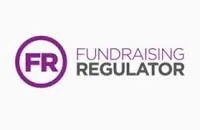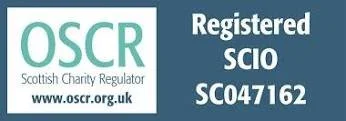
Grooming in the Charity Sector
On this page
Why abuse and grooming inside charities is so harmful
Examples of what happens
Charity Commissions
Sources of Support
Coming soon
To seek help from a charity, there is every chance that you are already vulnerable and need help.
Maybe you’ve witnesses child abuse but are afraid of the consequences for the child if you report. Maybe you need to report someone senior, or someone with clear mental health issues. Maybe telling of your own abuse will retraumatise you. So simply speaking up is hard, without the personal pressures.
Charities take people’s hard earned money in order to create ‘good’ in the World. The charities receive favourable financial treatment to make this happen. Like the police, it is our belief that they, like police, the government, educators need to be held to higher account. It should be a given that people who work for charities will be caring and up to the job.
In many cases this is the case.
However, what better cover than ‘charity worker’ for a narcissist or psychopath?
The problem runs deep. According to a Reuters article, a 2016 survey of 1,000 female aid workers at 70 organizations showed that about one in two had experienced persistent sexual advances or unwanted touching at least once in their careers while on a mission. Less than a third reported the incidents, most saying staying silent out of fear for their career. Others cited shame, luck of trust in the system and the absence of a report mechanism.
There is an imbalance in power between those seeking help and charities - especially large, well established ones - bringing it to our attention as grooming.
At CAAGe, we are concerned about whistle blowing. We are concerned about charities unwillingness to sort their problems. We are concerned about wolves in sheep’s clothing. But mostly, we are concerned to stamp out grooming within charities and would like to draw a spotlight and add our voices to supporting already vulnerable victims.
It pays charities to deal with the problem as well. Research by the Charities Commission Northern Ireland in 2016 revealed that almost three quarters (72%) spontaneously suggested that when donating, it is highly important that charities have a strong approach to protecting children and vulnerable adults.
-

Brendan Cox and doing the right thing
The Jo Cox Foundation was founded following the murder of politician Jo Cox, with the aim of creating stronger communities, respectful politics and a fairer World.
When Jo Cox’ husband, Brendan Cox, was called out for sexual assault, he ‘fell on his sword’ and resigned immediately from both The Jo Cox Foundation and the More in Common Network, both of which charities he had helped found in Jo’s name.
He was a repeat offender, also admitting to having sexually assaulted someone during his time with Save The Children. He was not alone in abusing there: not only was Justin but there had been reports overseas of abuse.
But amidst the resignations and apologies, and friends speaking on Brendan’s behalf, there is very little commitment to helping stamp out the mistreatment of staff and victims, and lots of pointing at the good work the charities do.
-

The Oxfam Sexual Abuse in Haiti Scandal
After the 2010 earthquake in Haiti, Oxfam workers were accused of paying women for sex (prostitution) and to attend staff orgies.
Some staff were bullied, and
Oxfam investigated, but although it fired four people, it then accused of a cover up. Three men were allowed to resign. This included country director, Roland van Hauwermeiren, whose Oxfam funded residence was apparently used for the wrongdoing.
To us at CAAGe, being allowed to negotiate a resignation period and resign with no consequences, lets down victims badly, especially when staff lower down the food chain were summarily fired for simply downloading pornographic images (although, of course, we are not privvy to the content).
Worse still, this had happened before, In Chad.
The Haiti Government were appalled that Oxfam allowed its workers to leave without reporting to the authorities:
“For the executive to know these crimes were committed and to allow those people to leave without informing the authorities is wrong. We might be dealing with a paedophile ring. Prostitution is illegal and we believe they may have been underage kids.”
Useful information:
Oxfam’s own report (Sadly their one year on report included no reference other than an oblique reference to educating others locally! One year on report It does, however, commit to working on women’s rights)
-

The Rigpa Fellowship
Sogyal Lakar (born Sonam Gyaltsen Lakar) was the spiritual leader of Buddhist charity The Rigpa Fellowship.
He was also known as Sogyal Rinpoche. Rinpoche is an honorific title for lama, a term used for Buddhist spiritual; leaders.
Soygal, author of The Tibetan Book of Living and Dying, had allegedly abused students physically, sexually and emotionally. This included regular beatings, rape, harassment, and manipulation. Some of his victims already had a history of sexual abuse. An independent legal investigation conducted by the Lewis Silkin firm found almost all of the accusations to be proven.
Revered in death, Soygal died before facing charges, but trustees were called to account.
Trustees covered up abuse (Guardian)
RIGPA continues to operate.
-

Jimmy Saville
Prolific abuser Jimmy Saville hid in plain sight, and one of his (many) enablers was that he did so much for charity.
People at charities, people in the BBC, and more, know of Saville’s behaviour, but faced with Saville’s fame and public image as a ‘funny’ man, famous presenter and do-gooder, many were afraid to speak up or were ridiculed when they did. Even in death he was lauded for his charity work, having made millions of pounds for charities.
When he died, £5.2million was apparently put aside for charity. The Charity Commission revealed that The Jimmy Savile Charitable Trust contained about £3.6million – while the Jimmy Savile Stoke Mandeville Hospital Trust had £1.6million.
Even family favourite Esther Ranzen didn’t feel she had enough evidence to whistleblow.
Saville never paid a price in life for his misdeeds. Heads rolled for the sake of being seen to do something, but until we truly address whistle blowing issues - and the protection of whistle blowers - beyond children’s charities, little seems to have changed that would stop an abuser like Saville.
-

-

Charity Workers who abuse
John Wood
Wilson Chowdhry My London
Hamish Ogston Civil Society
Guardian, February 2018
“All UK charities working overseas will be asked to confirm that they have referred all concerns they have about individuals and safeguarding cases to the relevant authorities, the government announced.”
Reporting abuse
Before ‘blowing the whistle’, we advise people to think carefully about the effect on you, what support you need, and why you are doing it. We are keen that we should blow open wrongdoing, but are also conscious that this is not easy.
Before you do anything else, unless you need immediate urgent help (in which case would the police be a better way to go?) find a way to clearly explain what has happened that’s wrong. Writing this down for yourself can sometimes help, along with, importantly, what proof/witnesses do you have?
Once you are ready to get information together and have things clear in your own mind, think about:
Does the information you have specifically break a law, go against what the charity has been established for, break a charity policy? It may be wrongdoing, but is the charity the right place to report, or should you be going to the police?
What are the facts? Don’t include your opinion or any speculation beyond what you have actually witnessed. This will sometimes be difficult. Maybe someone let slip something they’ve done. Maybe you’ve seen people being moved around at night and think it may be trafficking. You can raise an issue, but the facts backing your suspicions (rather than a certainty) need to be front of mind.
For anything you’ve seen, you’ll need to offer details of place and date/time, as closely as you possibly can.
All charities have a responsibility to ensure they don’t cause harm to anyone who has contact with them. Every charity should have safeguarding procedures publicly available (government regulation), a code of conduct and a way for people to report issues online. In practise many of even the largest charities don’t make this easy. Before reporting, be clear what the wrongdoing is (code of practise, government regulation etc.)
The responsibility for safeguarding ultimately lands with the board of trustees. This could be your next port of call if your initial report falls on deaf ears. To find these, you can search the Charity Register:
4. If this fails, raise a concern with the Charity Commission (or the OSCR in Scotland). Details appear below under ‘Sources of Support’, Raise a Concern. If the report is about a fundraiser, or a fundraising method, for example someone has been forming unhealthy relationships with older people to get them to sign over money, it would be the Fundraising Regulator who is responsible.
Helpful resources
-
If your complaint is against an employer, eg a charity worker blowing the whistle on a charity, ACAS may be able to help: ACAS on whistleblowing
-
PROTECT offers some fabulous advice on whistleblowing: Protect advice
-
Government advice on whistle-blowing: Whistleblowing
-
Article by PROTECT on Northern Irelands new whistle blowing protections: Whistleblowing NI
-
OCR Guide to whistleblowing:
Spotlight on UK Charity Commissions
-

The Fundraising Regulator (England, Wales and Northern Ireland)
The Fundraising Regulator helps protect the public in England, Wales and Northern Ireland from poor fundraising practices.
This includes people’s behaviour.
-

The role of the Charity Commission (England and Wales)
The Charity Commission is the registrar and regulator of charities (England and Wales).
They are an independent government department, answerable to Parliament rather than a minister.
Responsibilities include:
maintaining a register of current charities;
deciding whether organisations are charities
Their objectives are:
to increase public trust and confidence in charities;
raise awareness within charities of the need to operate to public benefit;
promote (note, promote, not enforce!) compliance by charity trustees with legal obligations especially with regard to charity management and administration;
promote (note again, promote, not enforce!) effective use of charity resources;
Enhance charities’ accountability of charities toward donors, beneficiaries and the general public.
At 31 March 2023:
168,893 charities were on the Register;
this represented £88bn of charity income and £85bn of charity spend
-

Charity Commission (England and Wales) Annual Report 2022-2023
Charity Commission report and accounts for 2022-2023 (March to March)
The report, produced by the Charity Commission: 2022-2023
-

Role of the Charity Commission Northern Ireland
The Charity Commission of Northern Ireland has the following aims:
Public confidence: To increase public trust and confidence in charities;
Public benefit: To promote awareness and understanding of the operation of the public benefit requirement;
Compliance: To promote compliance by charity trustees with their legal obligations in exercising control and management of the administration of their charities.
Charitable resources: To promote the effective use of charitable resources.
Accountability: To enhance the accountability of charities to donors, beneficiaries and the public.
Delivery: To manage the Charity Commission for Northern Ireland as an effective and efficient non departmental public body.
-

Role of the OSCR Scotland
The equivalent to the Charity Commission in England and Wales is the OSCR - the Scottish Charity Register - in Scotland, with 25,315 registered charities which include community groups, religious charities, schools, universities, grant-giving charities, and major care providers.
OSCR is the regulator and registrar for Scotland, and like the Charity Commission is a non-ministerial office (NMO), working alongside Scottish Government, and directly accountable to the Scottish Parliament.
Mission statement:
“The Scottish Charity Regulator will regulate in a way which builds trust and confidence in Scottish charities, holds charities to account and strengthens their ability to positively contribute to society.”
Objectives:
ensure the Scottish public’s confidence that the country’s charities are well run;
register every charity in Scotland;
meet annual reporting requirements.
Responsibilities
provide information to the public about charities and their activities;
offer tools and guidance to charities and the people who run them;
support and encourage sector improvements:
positively influence development of policy, legislation and practice affecting Scotland’s charity sector;
identify and address any wrongdoing, holding relevant parties to account.
-

OSCR Annual Report 2022-2023
Top line:
Key facts and figures for 2022-23 include:
Slight increase in the number of registered charities in Scotland;
867 new charities applied for charitable status; 759 charities wound up and were removed from the register;
638 concerns received about charities - OSCR to dealt with 228.
The report, produced by the OSCR: 2022-2023
Sources of Support
-
Galop serves LGBT+ people who have experienced abuse and violence - domestic abuse, sexual violence, hate crime, honour-based abuse, forced marriage, so-called conversion therapies, and other forms of interpersonal abuse.
The service is run by LGBT+ people, for the LGBT+ community.
-
CAAGe: Sources of Legal Support
-
Being groomed is traumatic. Being groomed when you’ve gone for help even more so. And watching someone go though it allcan be tough.
Find out about Mental Health Support
-
Unseen’s Modern Slavery Helpline and Resource Centre is working towards a world without slavery by supporting, equipping and influencing. Tel: 08000 121 700
-
Protect has useful information and an adviceline for Whistleblowers: Protect
-
England and Wales
The Charity Commission, England and Wales, explains how to raise a concern, the steps to take, and a form to report with: Raise a concern
Northern Ireland
The system in Northern Ireland has recently been updated/modernised. Read about it and how to raise a concern: here
Scotland
The OSCR explains how to raise a concern about a charity: procedure and form
Fundraising
If the concern regards a fundraiser or fundraising method, the fundraising regulator will help you through this: Raise a complaint
-
Respect runs a helpline specifically for male victims of abuse: Men’s helpline
-
Amongst it’s ,many offerings, Victim Support can help you prepare to report to the police and to go to court: Victim Support Website
And finally….
-

Charity Laws
Government link to laws regarding charities in Scotland: Charity Law
England and Wales: Charity law
The Fundraising code of practise (applies to England, Wales, Scotland and Northern Ireland): Fundraisers code, available in English and Welsh
In Scotland, the situation is a little more nuanced, but the basic code of practise still applies.: Fundraising in Scotland
Additionally, there is an EU Directive on Whistleblowing which was due to come into force, Protect explains: whistleblowing legislation
Please note that this information was researched in August 2023, and has been provided in a spirit of helpfulness. It doesn not pretend to be a replacement for proper legal advice, and will be updated as and when we become aware of changes.
-

Threats Facing Women Forced to Flee
The last thing anyone should be worried about when seeking help from a charity, and official organisation set up to help, is abuse by chariry workers….. (#5 ‘Still not safe’)
-

Oxfam Whistleblower points finger at both senior management and regulator
Helen Evans, Oxfam’s former global head of safeguarding, claimed that BOTH Oxfam’s top management and the UK’s Charity Commission failed to act on accusations of sexual abuse on the Caribbean island and in the African nation of Chad.



